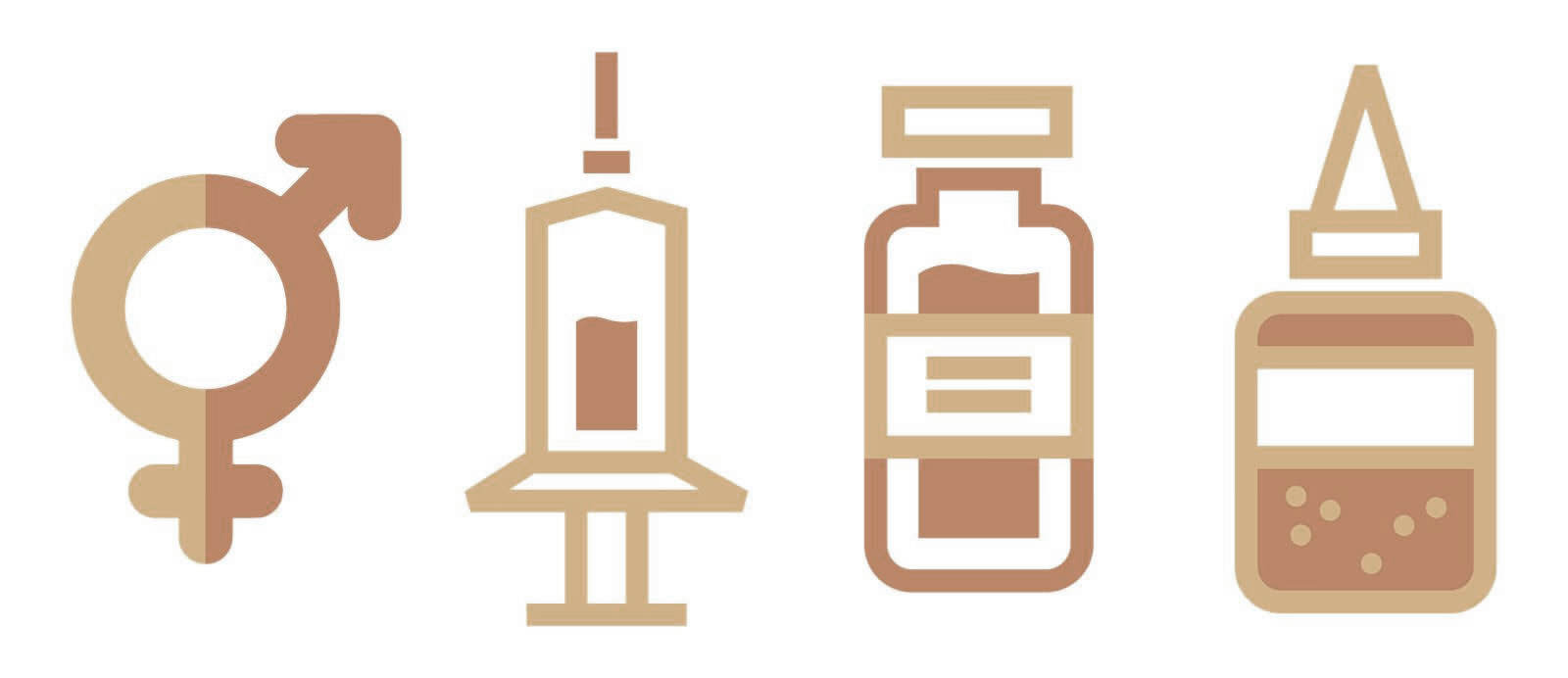Hormone therapy for transgender patients
Hormone therapy is a medical intervention for many transgender and non-binary individuals. The goal of bioidentical hormone therapy is to align secondary sex characteristics to reduce psychological and emotional distress associated with gender dysphoria and facilitate improved psychological and social functioning.
Although there are risks associated with taking feminizing/ virilizing medications, when prescribed appropriately, they can greatly improve the mental health and quality of life of transgender and non-binary patients.
In addition to inducing physical changes, the use of feminizing/ virilizing hormones is itself an affirmation of gender identity and therefore a powerful incentive for my patients.




